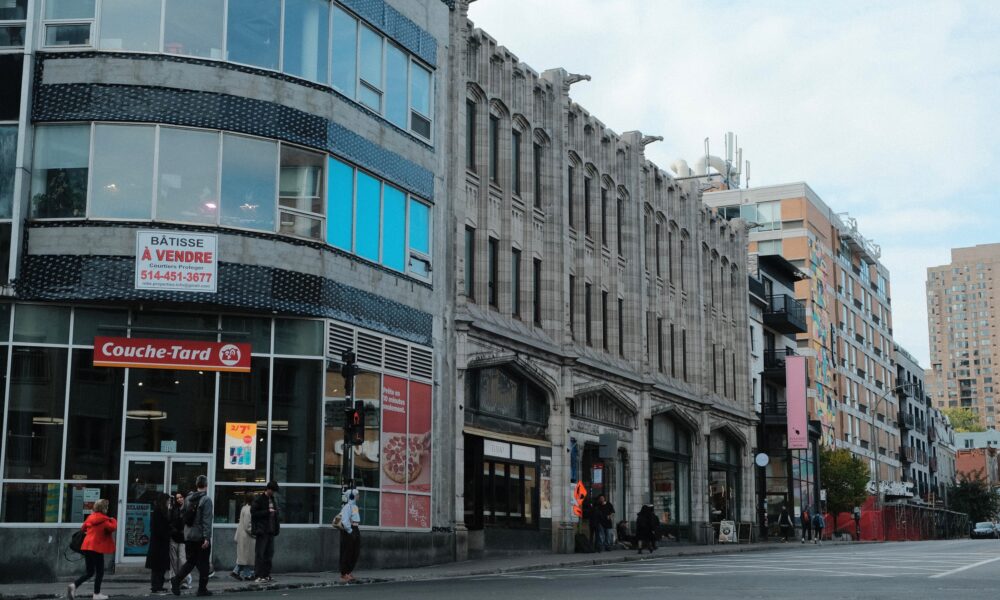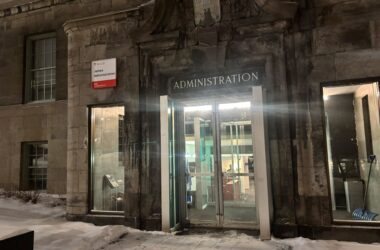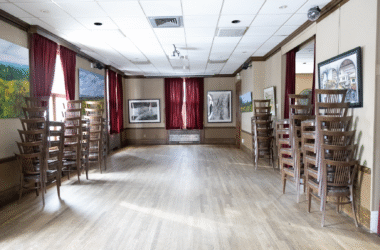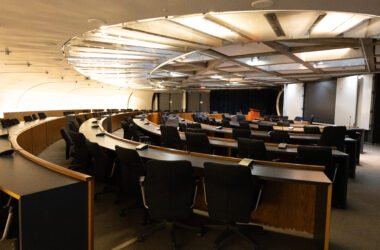Milton-Parc, which contains residents ranging from McGill students to senior citizens, lacks a walk-in clinic, local community services centre (CLSC), or any other form of accessible healthcare, leading to it being dubbed a ‘medical desert.’ A recent report by La communauté Milton-Parc found that six out of ten residents of Milton-Parc who were surveyed lack a family doctor, and many are unaware of the alternate healthcare options available to them.
Despite being in the heart of Montreal, Milton-Parc residents must travel farther to access healthcare than those living in surrounding areas. Most residents of the Plateau-Mont-Royal area, which contains Milton-Parc, have access to healthcare through service from the CIUSSS du Centre-Sud. Milton-Parc, however, falls under the CIUSSS du Centre-Ouest-de-l’Île-de-Montréal, which comprises a network of hospitals outside of their neighbourhood.
In an interview with The Tribune, Milton Park Citizens’ Committee President and McGill course lecturer Garrfield Du Couturier-Nichol explained that the medical crisis in Milton-Parc began six years ago, when the neighbourhood’s local clinic closed in 2019.
“There used to be a CLSC clinic in the [Air Transat Tower],” Du Couturier-Nichol stated. “That closed down, and since then, there’s been a problem because Milton-Parc is part of the Jeanne-Mance Plateau-Mont-Royal area. So we’re basically split between two CIUSSS authorities. [….] It basically goes by your postal code. For a lot of people, especially seniors, that’s very confusing.”
The bureaucratic division of the Centre-Sud and Centre-Ouest authorities, coupled with the sheer distance from the nearest clinic, leaves elderly, often technology-illiterate residents unsure of where to go for medical attention, Du Couturier-Nichol told The Tribune.
“I’m almost 83, and I have a bit of a mobility problem, but I’m still able to get around. So I can use public transport when it’s working to get to the CLSC,” he said. “But a lot of seniors in my age group have problems with mobility, so it’s difficult for them. They don’t know whether they belong in CIUSSS Centre-Sud, or CIUSSS Centre-Ouest, because it’s a very confusing thing for a lot of people. A lot of people are not computer-literate. And most of this [navigation] is done online, so it creates a problem. Since 2019 when [the local CLSC clinic] closed, a lot of seniors have basically just given up.”
While the lack of accessible healthcare falls hardest on seniors, many McGill students living in Milton-Parc also feel the strain when they need medical care. One resident, Annika Arya, U1 Arts, spoke in an interview with The Tribune about her experience accessing healthcare. When she fell ill this month, the lack of clinics in Milton-Parc forced her to either use Uber or walk 30 minutes to the nearest emergency room.
Arya also discussed her experiences attempting to seek services at McGill’s Student Wellness Hub. She called for more accessible healthcare options throughout McGill’s campus and residential areas.
“I [have gotten] two appointments out of maybe the 10 times that I’ve called [the Wellness Hub],” Arya reported. “I think that McGill needs to make it a priority to implement more health clinic facilities throughout campus, including [in] Milton-Parc and the residence areas.”
The McGill Media Relations Office (MRO) stated in a written response to The Tribune that they are taking steps to address the wider issue of healthcare accessibility, and ensure McGill students can find the support they need.
“We are […] actively working to mitigate the impact of broader systemic challenges in the provincial healthcare system—such as limited access to primary care and mental health services—by expanding our interdisciplinary care model, improving pathways and increasing our capacity to timely appointments, and strengthening partnerships with local organizations,” the MRO wrote.
Du Couturier-Nichol suggested the establishment of a mobile clinic would be a positive step to remedying Milton-Parc’s medical challenges, before introducing a more permanent solution.
“The first step would be to have at least a mobile clinic once or twice a week in the Milton-Parc area to start looking at the problem and understanding the number of seniors who may have medication or health-related problems or need social work. And then progress from there,” he stated. “Look for a location that’s fairly central in Milton-Parc to establish a permanent clinic.”









